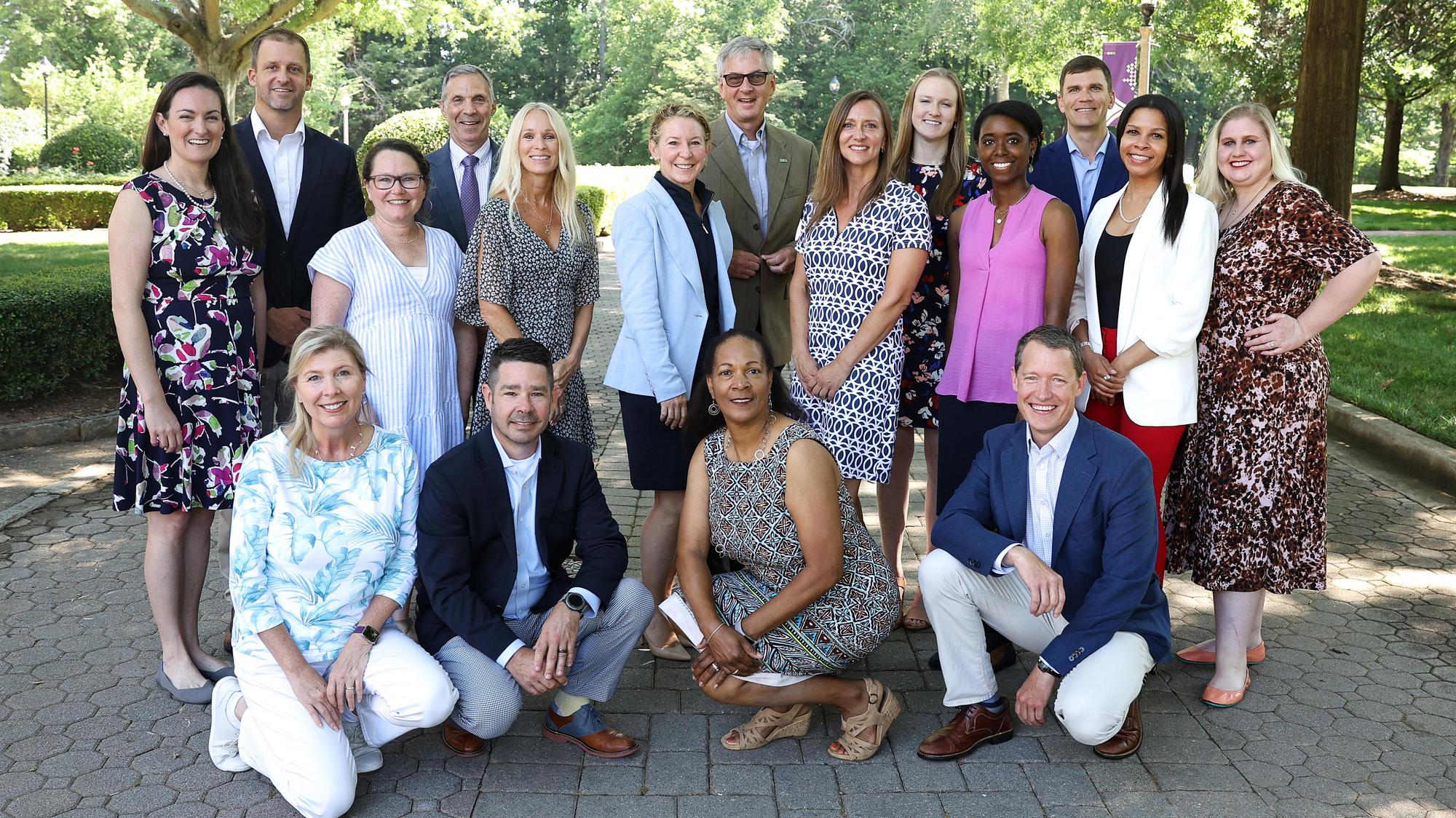Leading the way to a sustainable state

On June 2, 23 South Carolinians representing organizations across the state gathered in Hartness Pavilion at Furman University for a graduation ceremony. At the end of the day, they were ready to take what they learned back to their organizations – including Google, BMW, Coca-Cola, Milliken, The Nature Conservancy and Audubon and state government agencies – as graduates of the inaugural class of the Sustainability Leadership Initiative (SLI), a joint effort between The Shi Institute for Sustainable Communities and Sustain SC.
The goal of the SLI, announced last fall, is to create a network of leaders in the state with the knowledge, skills and desire to collaborate and support each other in identifying pathways and executing solutions for a sustainable future.
“What we’re attempting to do is connect individuals, leaders and businesses to ideas and resources centered around sustainability in a way that allows the business community to really embrace sustainability for the benefit of South Carolina,” said Kelly Grant Bertrand, associate director of sustainability programs at The Shi Institute.
Centering sustainability amid diverse perspectives
The initial cohort of 23 gathered for six day-and-a-half sessions between October 2021 and April 2022 to discuss how they could bring sustainability to the front and center of their organizations, learning from Furman faculty as well as experts from around the region including Furman graduate, Grady Powell, Founder and CEO of Openfields. Sessions included dialogue, active learning, case studies, and site tours including BMWs Spartanburg factory and Sonoco. Each session was paired with a Sustainability Forum for deeper dives into topics such as energy and electrification, carbon neutrality and water, ethics and human well-being, and climate and circular economy.
Bertrand credits SLI Program Director Courtney Quinn with shaping those classes. Quinn, who is a visiting research associate in sustainability science and adjunct professor at Furman, said she aimed for a mixture of leadership development, relationship development and learning about sustainability.
A mixture of perspectives was important, too, say the leaders. They intentionally selected participants with diverse backgrounds and priorities. Fellows found themselves working with collaborators they might not have ever expected to meet.
“The first class was extremely awkward,” remembered Bunch. “I mean, feeling like they didn’t have anything in common.”
Quinn said the role of the fellowship program is to bring together people from diverse sectors, in effect, “forging relationships between people whose sectors might conflict, to develop personal relationships with each other and have conversations around sustainability. And then partnerships can come out of it.”
‘A united voice’
The fellows dug into specific sustainability topics, but also considered broader concepts such as systems thinking, storytelling and imagination, said Quinn.
The fellows already understood many of the challenges facing their state, including “population growth that’s pushing land-use change and a statewide energy policy that’s not as competitive as the states around us for green energy that can affect our ability to recruit corporations and jobs in the future,” said Quinn.
“They are now best friends,” Bunch said of the first group of fellows. “Literally best friends. They have a group on WhatsApp, and it’s hilarious. I didn’t want to put any expectations on them other than a basic structure, and they totally created their own thing. They have a lot of ownership.”
The classmates are leaving with “a united voice,” said Quinn, noting that the fellowship is working on a joint statement in support of the Conservation Enhancement Act currently moving through the South Carolina Legislature.
“A letter of support that’s coming from business and conservation groups together can be a powerful voice to promote policy changes and systems-level change,” she said.
Breaking down barriers and finding the future
And even before they had finished their year in SLI, the first group of fellows was already planning how they could help the next group, whoever they may be.
“They are very protective of the next class,” said Quinn. “They want to be mentors. They’re going to be part of selecting the next class, and they’re already starting to create the alumni program.”
SLI leaders hope to again find a balance between private, public and conservation NGO representatives, continuing the open exchange of perspectives the first cohort had. And they want to get to work quickly, because there’s a lot to be done, said Bunch.
“We don’t have time for small talk,” she said. “The world doesn’t have time. But I think the world is shifting, because the financial institutions and the industries are driving a lot of this conversation, and it does break down some of these barriers.”